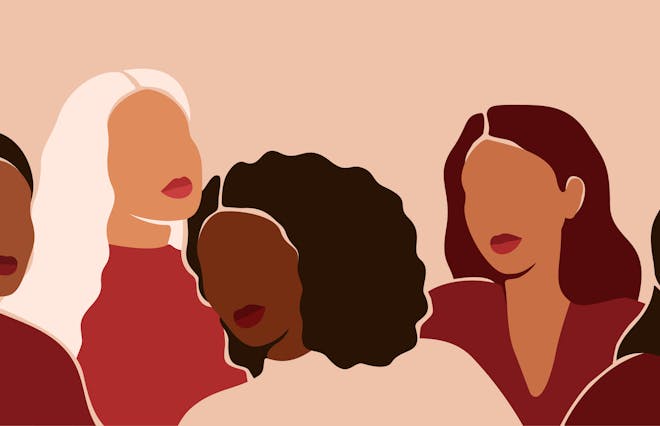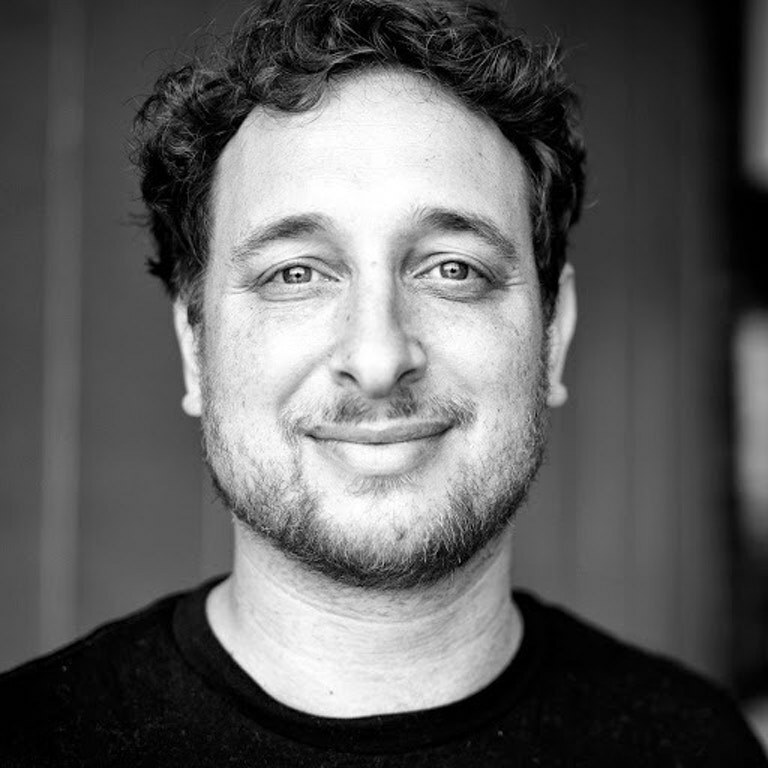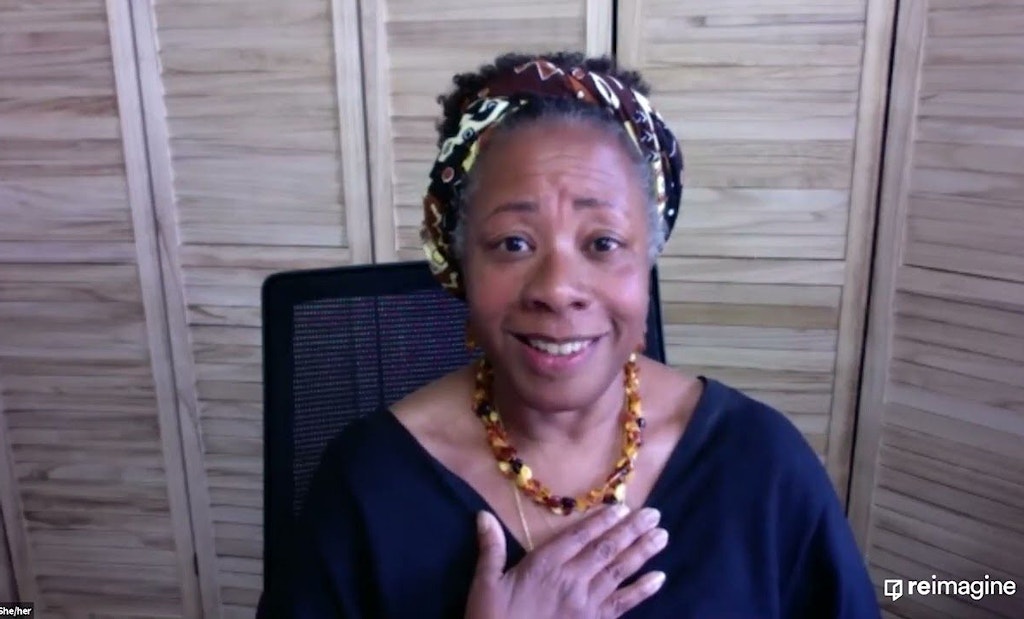Exploring the Contributions of Black Women Leaders in the Death and Grief Space



January 30, 2023
Related Event

Black History Month is a time to honor and recognize the contributions of Black people throughout history. In the field of death and grief, Black women leaders have made significant strides in creating safe spaces, promoting open and honest conversations, and advocating for culturally-sensitive end-of-life care. This article will explore the contributions of five Black women leaders in the death and grief space.
On May 6, 2021, Reimagine hosted a Table Talk event titled "A Long Way From Home: The Grief of Black Women & Mothers" featuring a panel of Black women speakers: Oceana Sawyer, Alica Fornert, Naomi Edmonson, and Adaku Utah. The event provided a platform for candid discussions about the impact of grief on the minds, bodies, and spirits of Black mothers and daughters, both in terms of ancestral pain passed down from generation to generation and the current trauma caused by social injustice and COVID-19.
The panelists offered strategies for healing trauma and creating a more beautiful future for our children, families, and communities. They also shared their unique perspectives as Black women navigating the intersectionality of their identities and the challenges of dealing with serious illness, dying, grief, discrimination, and inequity.
Speakers: Oceana Sawyer; Alica Forneret; Naomi Edmondson; Adaku Utah
Additional Mention: Alua Arthur
Oceana Sawyer: A Hospice Chaplain and Death Doula's Perspective
Oceana Sawyer is an end of life doula who is dedicated to the liminal space of active dying and grief. She is currently researching and holding space in the realm of embodied grieving in a context of somatic abolitionism. She draws upon her meditation practices, experience as a sensuality educator, earth-based spirituality, and an intensive study in the expressive arts and integral counseling psychology to bring a grounded, compassionate presence to her work with individuals and groups.
Sawyer emphasizes the importance of cultural competency in the support that one seeks for their grief, particularly for BIPOC communities. She has hosted a virtual "death cafe" for the BIPOC community and continues to host events focusing on grief and the Black experience. She stresses the importance of being able to communicate one's experience to someone who can actually hear it and receive it and reflect it back to you in its entirety without the need for code-switching.
Sawyer also highlights the importance of movement and sound, known as somatic or vocal processing, as a way of moving through grief. This can be particularly powerful for BIPOC grievers. She suggests that people notice and observe their body, meditate, move, and get out in nature to start moving and noticing how it feels in the body, where the emotions are located in the body. In addition, she hosts her online grief community on Patreon and encourages people to follow her on Instagram.
Alica Forneret's Journey as a Death Doula and Hospice Volunteer
Alica Forneret is a leading voice in the conversation around grief, death, and dying. As an author and consultant, she is dedicated to creating spaces for people to explore their grief and has made it her mission to make sure that we have more conversations about these topics - whether at home, at work, or with strangers on the bus.
As a member of the BC Women's Health Foundation’s Young Women's Council, an Associate Board Member of Our House Grief Center, and a host of end-of-life events across the United States and Canada, Alica has a wealth of experience and expertise in the field. Her written work has been featured on the pages of popular magazines and books, including GQ, Modern Loss, Grief Dialogues, Vancouver Magazine, and Kinfolk. Her story and voice have also been featured in the NY Times, LA Times, Women’s Health, Psychology Today, CTV News, Grief Out Loud, InStyle, and more.
Alica believes that providing unique support to people of color is necessary and not racist. She explains that people of color can grieve differently and often grieve a loss of hope and safety in addition to someone’s life. Furthermore, many people of color may not always feel a sense of safety, which can significantly affect their emotional and physical well-being. For these reasons, Alica is dedicated to providing unique support to marginalized communities.
The Work of Death Doula Naomi Edmondson
Naomi Edmondson is a grief-focused death doula, model, and artist dedicated to providing a safe, loving space for people to freely express their thoughts around dying. She began her journey as a death doula in 2014 after the death of a close mother figure, during which she unknowingly fell into the role of a death guide, providing support and care for her and her family. To further her understanding and skills in this field, she completed her death doula training via Going With Grace, participated as a student guide, and trained as a hospice volunteer.
Her background in art, breathwork training, and personal experience creating rituals inform her work, and she is also a member of NEDA Alliance (National End of Life Doula Alliance), a hospice volunteer with Visiting Nurse Services, friendly phone volunteer with Griot Circle, and has undergone Compassionate Listening Training with A Sacred Passing, Level I Breathwork Healer Training with Erin Telford, and Level 1 Grief Literacy Training with Being Here, Human. Naomi also speaks about the unique experiences of Black, queer and intersex people in her community and how they are impacted by grief differently. She shares her work on Instagram and also runs Glorious Hum resources.
Adaku Utah: A Queer Teacher, Organizer, Healer, and Ritual Artist
Adaku Utah is a Nigerian-born Igbo Queer teacher, organizer, healer, and ritual artist who has dedicated over twenty years to movements for radical social change, focusing on gender, reproductive, race, youth, and healing justice. She has worked with numerous organizations, including the Illinois Caucus for Adolescent Health, Black Lives Matter, Black LGBTQIA+ Migrant Project, The Movement for Black Lives, Yale University, Planned Parenthood, Astraea Lesbian Foundation, Black Women’s Blueprint, The Audre Lorde Project and many others. Alongside Harriet Tubman, she is the co-founder and co-director of Harriet's Apothecary, a healing village led by Black Cis Women, Queer and Trans healers, artists, and organizers committed to living out Harriet Tubman's legacy of centering healing, wellness, and safety as movement building strategies to deconstruct legacies of trauma and galvanize communities to shape generative transformation.
Currently, Adaku is the Organizing Director at the National Network of Abortion Funds, where she plays a key role as a strategist, innovator, and implementer, building and mobilizing the left-flank organizing power and movement-building efforts with 70+ member organizations, individual members, and network leaders across the country and world. Additionally, she teaches and coaches with BOLD (Black Organizing for Leadership and Dignity), a national leadership training program designed to help rebuild Black social justice infrastructure in order to organize Black communities more effectively and re-center Black leadership in the U.S. social justice movement. She also teaches and coaches with Generative Somatics.
Adaku has been recognized for her work, being named a 2020 Laundromat Project Community Impact Honoree, a 2017 Essence Magazine Woke 100 Change Maker, and a recipient of the 2017 Gye Nyame Empowerment Project My Sister's Keeper Award, the 2015 A Blade of Grass Fellowship, the 2015 Laundromat Project Create Change Fellowship and the 2012 Sexuality Leadership Development Fellowship with the Africa Regional Sexuality Resource Centre in Lagos, Nigeria. She also served as a founding board member of Soul Fire Farm for the last six years as a commitment to ending the racism and injustice in the food system. In her spare time, she enjoys learning about astrology, herbs, erotica, and sci-fi.
Navigating Grief and Trauma: A Look at the Work of Alua Arthur
While not a speaker at this particular event, Alua Arthur is another individual who is important to highlight; Alua is a death doula and the founder of Going with Grace, a death doula training and end-of-life planning organization that supports people as they answer the question, “What must I do to be at peace with myself so that I may live presently and die gracefully?” Through her organization, she helps people, both ill and healthy, plan the end of their lives and provides education and support to navigate the end-of-life process and find peace and grace in the process. In 2012, she decided to become a death doula after a conversation with a woman on a bus trip who was suffering from cancer and didn't have anyone to talk to about dying.
Arthur's approach is to help clients find the individual and what they care about and pour that into their dying. Through her online courses, she teaches elements she learned over the past decade, like navigating medicine and the healthcare system, the mechanics of dying, the funeral industry, and how to honor a dying person's legacy through rituals.
For her own death, Arthur has a plan in mind. She sees herself sitting on a deck as the sun sets, hues of orange and purple painting the horizon. She'll hear running water nearby and be surrounded by all the people she loved, though they won't be allowed to touch her physically. "And then, as soon as they see I've taken my last breath, I want them to clap and be really grateful that I lived, and hopefully died, with grace," Arthur said.
The contributions of Black women leaders like Alua Arthur, Naomi Edmonson, Alica Forneret, Oceana Sawyer, and Adaku Utah have been significant in the death and grief field. They have provided education, support, and advocacy for individuals and families to navigate the end-of-life process and find peace and grace while raising awareness and encouraging conversations about grief, death, and dying. They have helped to make the death and grief field more inclusive and responsive to the needs of marginalized communities.
About Table Talk
Reimagine's Table Talk series is an ongoing initiative aiming to create space for honest, unscripted conversations about living and dying well in different communities and cultures. In consultation with staff and community collaborators, the series is explicitly created by and for underrepresented communities. However, people of all backgrounds are welcome to join, listen, learn, and witness. The series is rooted in Justice, Equity, Diversity & Inclusion (J.E.D.I.) for everyone to thrive.
Related Event


